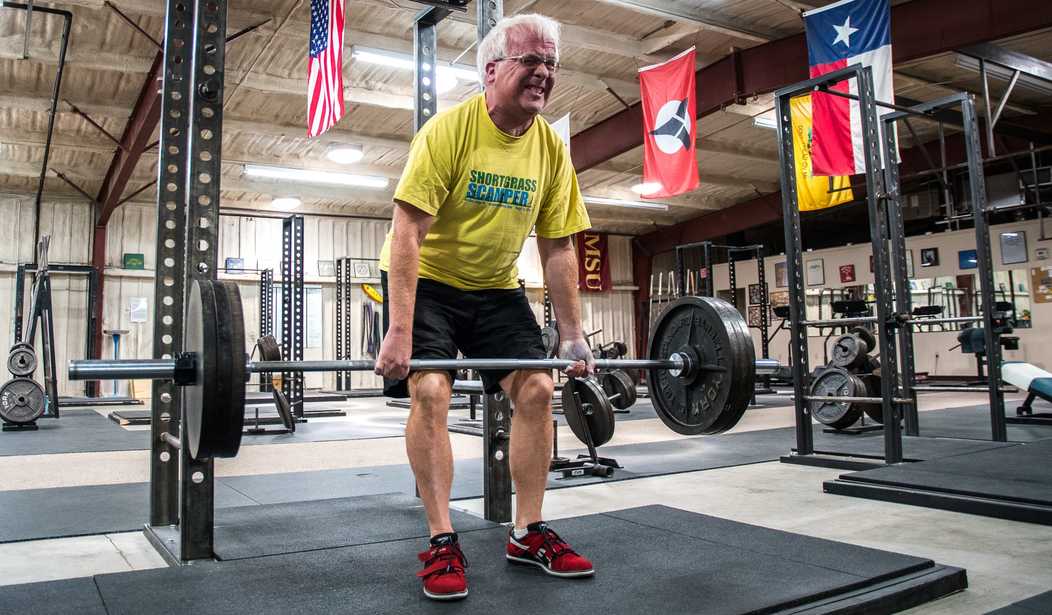A recent article from Harvard Health Publishing has been making the rounds in the MSM. The stunning Ivy League news is that exercise improves bone density scores. I first saw this years ago when tennis players were studied, and it was found that the bone density of the racquet arm was significantly higher than the other arm. This resurfaces every couple of years as the media need something about “health” to publish. I think it’s interesting because of the underlying truth buried in the blizzard of nonsense these people create for a living, and if you can see through it you’ll benefit.
This is the piece in question: “Strength Training Builds More Than Muscles“.
It’s a short piece that attempts to summarize the principle of stress/recovery/adaptation as it applies to osteoporosis, the normal result of removing stress from the skeletal system.
Yes, friends, osteoporosis is the perfectly normal result of sitting squarely upon your butt, supplying real-time information to your skeleton about what you’d really like it to do. Your body is a dynamic system, and as long as you remain above the dirt, all the systems of your body interact with its environment by adapting to the stress placed upon it by that environment. And no stress whatsoever is actually an important form of stress.
You’re used to thinking about your muscles getting weaker when you don’t use them, and every week another badly written piece about the benefits of exercise gets dredged up from the bowels of the exercise press, reporting breathlessly the latest news: running is good for your heart/bowling is good for your feet/going to an exercise class is associated with not going to the hospital/riding a treadmill adds a minute to your life every year/using the stairs instead of the elevator makes you breathe harder/walking in the store while you shop instead of riding the slob sled reduces your chance of getting diabetes by 4%.
Not sitting on your butt is good for you. You’re supposed to already know that. And you need to start thinking in broader terms, because all these studies — while deeply flawed and quite silly for various reasons — are telling you the same thing: your body adapts to the circumstances in which you place it. If you choose easy, your body adapts by getting better at easy. Then, when hard comes along — it always does, you know — guess what you’re not ready for?
Here’s a piece that gets close, but stops short of the whole story: “The Best Way to Avoid Back Pain? Lift Heavy Things“.
Credit where credit is due: This statement — “Human tissue needs to be exposed to loads to become strong — and the spine is a good example of this” — is precisely what we’re talking about. I wish the author had just gone ahead and finished the idea with the word “deadlifts.” They are the best exercise for loading the spine in a controlled, safe way that is incrementally increasable over a long period of time. Deadlifts. It’s just sitting right there, ready to say, but somehow she couldn’t bring herself to recommend a barbell exercise.
Deadlifts start very light, and over time can make your back very strong. And not just your back, but your spine, your legs, the bones in your legs and hips and feet, your arms and hands, your shoulders and neck, your abs, your guts, your heart, and your brain. If a correctly performed and programmed exercise stresses a part of your body, it strengthens that part of your body.
The process of stressing the body with things that are harder than you’re used to but that don’t kill you, and recovering from that stress with enough food and rest, produces an adaptation to the stress. It raises the bar a little. Do this intentionally for a period of time, and you’re training.
Training takes advantage of this adaptation phenomenon, your intelligence in planning your activities, and your determination to apply this process to your own situation for more than a week. But to use it to your advantage you must stop thinking about the small things in the media stories and start seeing the bigger picture. Your body is a dynamic system, a component of your environment. If it is to function within that environment, it must stay ahead of at least most of the things it is likely to encounter. You’re in charge of keeping it that way.








Join the conversation as a VIP Member